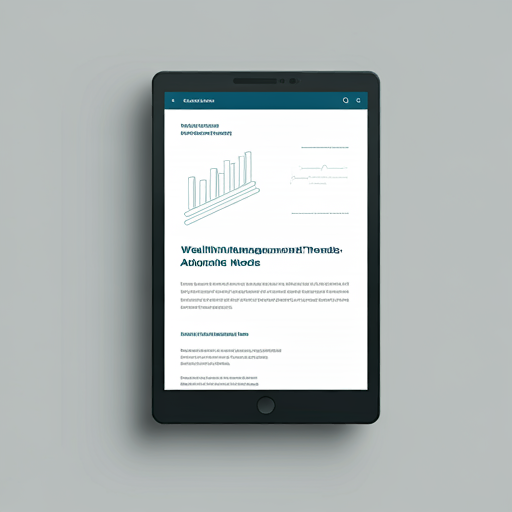Sustainable Investing: Balancing Profits and Environmental Impact
Introduction to Sustainable Investing
Sustainable investing represents a paradigm shift in the financial landscape, where investors seek to achieve competitive returns while considering environmental, social, and governance (ESG) factors. This approach necessitates a careful evaluation of investment opportunities, balancing potential profitc against their ecological impact. Investors must analyze the sustainability practices of companies, assessing their carbon copy footprints and resource management strategies. It is essential to recognize that sustainable investments can yield long-term financial benefits. This is a critical consideration for informed investors.
Moreover, the integration of sustainability into investment strategies often leads to enhanced risk management. By prioritizing companies with robust ESG frameworks, investors can mitigate potential liabilities associated with environmental degradation. This proactive stance can safeguard capital in volatile markets. The financial community increasingly acknowledges this correlation. As a result, sustainable investing is not merely a trend; it is becoming a fundamental aspect of prudent financial management. The future of investing is evolving.
Importance of Environmental Considerations
Environmental considerations are increasingly vital in investment decision-making. Investors recognize that companies with strong sustainability practices often exhibit lower risk profiles. This correlation can lead to more stable returns over time. It is crucial to understand this relationship. Furthermore, regulatory pressures and consumer preferences are shifting towards environmentally responsible practices. Companies that adapt are likely to outperform their peers. This trend is noteworthy.
Incorporating environmental factors into investment strategies can enhance portfolio resilience. By diversifying into sustainable assets, investors can mitigate potential losses from environmental liabilities. This approach is prudent. As the global economy transitions towards sustainability, the financial implications are profound. Investors must stay informed. The landscape is changing rapidly.
Overview of Cryptocurrency’s Role
Cryptocurrency plays a significant role in the evolving landscape of sustainable investing. As digital assets gain traction, their potential for promoting transparency and efficiency becomes evident. This is an important consideration for investors. Blockchain technology, which underpins cryptocurrencies, offers a decentralized ledger that can enhance traceability in supply chains. This feature is particularly valuable for assessing sustainability practices.
Moreover, certain cryptocurrencies are designed with energy efficiency in mind. For instance, proof-of-stake models consume significantly less energy than traditional proof-of-work systems. This distinction is crucial for environmentally conscious investors. Additionally, the rise of green cryptocurrencies reflects a growing demand for eco-friendly investment options. As the market matures, the integration of sustainability into cryptocurrency will likely become more pronounced. Investors should remain vigilant.
Challenges in Sustainable Investing
Sustainable investing faces several challenges that can complicate dscision-making. One significant issue is the lack of standardized metrics for measuring sustainability performance. This inconsistency can lead to confusion among investors. Additionally, many companies may engage in “greenwashing,” where they exaggerate their environmental efforts. This practice undermines genuine sustainable initiatives.
Moreover, the volatility of certain sustainable assets can deter risk-averse investors. Fluctuating prices may not align with long-term sustainability goals. This reality is concerning. Furthermore, regulatory frameworks are still evolving, creating uncertainty in the market. Investors must navigate these complexities carefully. Staying informed is essential for making sound investment choices.
Understanding Sustainable Investing in Cryptocurrency
Definition and Principles of Sustainable Investing
Sustainable investing refers to the practice of incorporating environmental, social, and governance (ESG) factors into investment decisions. This approach aims to generate long-term financial returns while promoting positive societal impact. Investors must evaluate companies based on their sustainability practices. This evaluation is crucial for informed decision-making.
The principles of sustainable investing include transparency, accountability, and ethical considerations. Investors seek to understand how companies manage their resources and impact the environment. This understanding fosters responsible investment choices. Additionally, sustainable investing encourages engagement with companies to improve their practices. This proactive approach can lead to meaningful change. As the market evolves, the integration of sustainability into investment strategies becomes increasingly important. Investors should remain aware of these developments.
How Cryptocurrency Fits into Sustainable Investing
Cryptocurrency can play a significant role in sustainable investing by offering innovative solutions to traditional financial challenges. Many blockchain projects focus on enhancing transparency and traceability in supply chains, which can improve sustainability practices. This capability is essential for responsible investing. Additionally, certain cryptocurrencies are designed to minimize energy consumption, addressing concerns about the environmental impact of mining. This distinction is crucial for eco-conscious investors.
Moreover, decentralized finance (DeFi) platforms often promote financial inclusion, allowing underserved populations access to capital. This aspect aligns with the social component of sustainable investing. By supporting projects that prioritize sustainability, investors can contribute to a more equitable financial system. This is a compelling opportunity. As the cryptocurrency landscape evolves, its integration into sustainable investing strategies will likely expand. Investors should stay informed about these developments.
Case Studies of Sustainable Cryptocurrencies
Several cryptocurrencies exemplify sustainable practices through innovative approaches. For instance, Cardano employs a proof-of-stake consensus mechanism, significantly reducing energy consumption compared to traditional proof-of-work systems. This efficiency is noteworthy. Another example is Stellar, which focuses on financial inclusion by facilitating low-cost cross-border transactions. This mission aligns with social sustainability goals.
Additionally, Algorand emphasizes carbon neutrality by offsetting its emissions through various environmental initiatives. This commitment is commendable. These case studies illustrate how cryptocurrencies can contribute to sustainable investing. Investors should consider these factors when evaluating potential assets. The landscape is evolving rapidly.
Regulatory Framework and Guidelines
The regulatory framework surrounding sustainable investing in cryptocurrency is still developing. Various jurisdictions are implementing guidelines to ensure transparency and accountability. This evolution is crucial for investor confidence. For instance, the European Union is working on the Markets in Crypto-Assets (MiCA) regulation, which aims to create a comprehensive legal framework. This initiative is significant for market stability.
Additionally, regulatory bodies are increasingly focusing on ESG disclosures for cryptocurrency projects. This requirement encourages companies to report their sustainability practices. Investors benefit from this transparency. Furthermore, compliance with these regulations can enhance the credibility of sustainable cryptocurrencies. This aspect is vital for long-term success. As regulations evolve, investors must stay informed about compliance requirements. Knowledge is power in this landscape.
Environmental Impact of Cryptocurrency Mining
Energy Consumption and Carbon Footprint
Here are 10 trending article titles for a financial website based on the latest news and analysis of financial trends: No input data
Comparative Analysis of Mining Methods
A comparative analysis of mining methods reveals significant differences inwards energy consumption and environmental impact. Proof-of-work (PoW) systems, such as Bitcoin, require substantial computational power , leading to high energy usage. This method raises concerns about carbon emissions. In contrast, proof-of-stake (PoS) systems, like Cardano, consume far less energy.
Additionally, hybrid models are emerging, combining elements of both methods to optimize energy use. These innovations can reduce the overall carbon footprint of cryptocurrency mining. Investors should consider these factors when evaluating projects. Sustainable practices are increasingly important. As the industry evolves, understanding these mining methods becomes essential for responsible investment. Knowledge is key in this area.
Innovations in Eco-Friendly Mining
Innovations in eco-friendly mining are transforming the cryptocurrency landscape. New technologies focus on reducing energy consumption and minimizing environmental impact. For instance, some mining operations are utilizing renewable energy sources, such as solar and wind power. This shift is significant for sustainability.
Additionally, advancements in cooling technologies are improving the efficiency of mining rigs. These innovations help lower energy costs and reduce carbon footprints. Companies are also exploring carbon offset programs to balance their emissions. This approach is commendable. As the industry embraces these eco-friendly practices, the potential for sustainable growth increases. Investors should pay attention to these developments.
Future Trends in Sustainable Mining Practices
Future trends in sustainable mining practices are likely to focus on increaqed efficiency and reduced environmental impact. One significant trend is the adoption of renewable energy sources, such as solar and hydroelectric power, to fuel mining operations. This shift can significantly lower carbon emissions. Additionally, the development of more energy-efficient mining hardware is expected to enhance overall performance. This innovation is crucial for sustainability.
Another emerging trend is the implementation of circular economy principles in mining. This approach encourages the recycling of materials and the reduction of waste. Companies are also exploring partnerships with environmental organizations to promote sustainable practices. This collaboration can lead to meaningful change. As these trends gain traction, the cryptocurrency mining industry may become more aligned with global sustainability goals. Investors should monitor these developments closely.
Investment Strategies for Sustainable Cryptocurrencies
Identifying Sustainable Projects
Identifying sustainable projects in cryptocurrency requires a thorough evaluation of various factors. Investors should assess the environmental impact of mining operations and the energy sources used. This analysis is crucial for informed decisions. Additionally, examining a project’s commitment to transparency and governance can provide insights into its sustainability practices. This information is valuable.
Investors should also consider the social implications of a project. Initiatives that promote financial inclusion or community development often align with sustainable goals. Furthermore, reviewing partnerships with environmental organizations can indicate a project’s dedication to sustainability. This collaboration is significant. By focusing on these criteria, investors can better identify sustainable cryptocurrency projects. Knowledge is essential in this process.
Risk Assessment and Management
Risk assessment and management are critical components of investing in sustainable cryptocurrencies. Investors must evaluate both market risks and environmental risks associated with specific projects. This dual approach is essential for informed decision-making. Additionally, understanding regulatory risks is vital, as changing regulations can impact project viability. Staying updated on these changes is important.
Diversification is a key strategy for managing risk. By spreading investments across various sustainable projects, investors can mitigate potential losses. This strategy enhances overall portfolio resilience. Furthermore, conducting thorough due diligence on each project can uncover hidden risks. This process is crucial for long-term success. Investors should also consider using risk assessment tools to quantify potential impacts. Knowledge is power in this context.
Long-Term vs Short-Term Investment Approaches
Long-term and short-term investment approaches each have distinct advantages in the context of sustainable cryptocurrencies. Long-term investors typically focus on projects with strong fundamentals and sustainable practices. This strategy allows for potential growth over time. In contrast, short-term investors may capitalize on market volatility to achieve quick gains. This approach requires careful timing and analysis.
Additionally, long-term investments often align with broader sustainability goals. Investors can support projects that prioritize environmental and social responsibility. This alignment is significant. On the other hand, short-term strategies may involve higher risks due to market fluctuations. Investors should weigh these risks carefully. Ultimately, the choice between long-term and shortsighted-term strategies depends on individual risk tolerance and investment objectives. Each approach has its merits.
Building a Sustainable Investment Portfolio
Building a sustainable investment portfolio requires careful selection of assets that align with environmental, social, and governance (ESG) criteria. Investors should begin by identifying cryptocurrencies that prioritize sustainability in their operations. This focus is essential for long-term viability. Additionally, diversifying across various sectors within the cryptocurrency space can mitigate risks.
Moreover, incorporating projects that utilize renewable energy sources for minigg can significantly reduce carbon footprints. This consideration is crucial for eco-conscious investors. Evaluating the governance structures of projects is also important, as strong governance can indicate a commitment to sustainability. This aspect should not be overlooked. Regularly reviewing and adjusting the portfolio based on market trends and sustainability developments is vital. Staying informed is key to success.
The Future of Sustainable Investing in Cryptocurrency
Emerging Technologies and Their Impact
Emerging technologies are reshaping the landscape of sustainable investing in cryptocurrency. Innovations such as blockchain interoperability can enhance transparence and efficiency across platforms . This improvement is significant for investors. Additionally, advancements in artificial intelligence can optimize energy consumption in mining operations. This optimization is crucial for reducing environmental impact.
Furthermore, the development of decentralized finance (DeFi) applications promotes financial inclusion and sustainability. These applications can empower underserved communities. Another noteworthy trend is the integration of carbon credits into blockchain systems, allowing for real-time tracking of emissions. This capability is valuable for accountability. As these technologies evolve, they will likely drive more sustainable practices in the cryptocurrency sector. Awareness is essential for investors.
Role of Community and Stakeholders
The role of community and stakeholders is crucial in shaping the future of sustainable investing in cryptocurrency. Engaged communities can drive demand for environmentally responsible projects. This influence is significant for market trends. Additionally, stakeholders, including developers and investors, can collaborate to establish best practices for sustainability. This collaboratiin fosters innovation.
Moreover, community feedback can guide project development, ensuring alignment with sustainability goals. This input is valuable for long-term success. Furthermore, educational initiatives can empower stakeholders to make informed decisions about sustainable investments. Knowledge is essential in this evolving landscape. As communities become more active, their impact on sustainable practices will likely increase. Awareness is key for all participants.
Predictions for Market Trends
Predictions for market trends indicate a growing emphasis on sustainability within the cryptocurrency sector. As regulatory frameworks evolve, projects that prioritize environmental, social, and governance (ESG) criteria are likely to attract more investment. This shift is significant for market dynamics. Additionally, the demand for green cryptocurrencies is expected to rise as investors become more eco-conscious.
Furthermore, technological advancements will likely enhance the efficiency of mining operations, reducing their carbon footprint. This improvement is crucial for sustainability. Moreover, partnerships between cryptocurrency projects and environmental organizations may become more common, fostering accountability. This collaboration is beneficial. As these trends develop, the landscape of sustainable investing in cryptocurrency will continue to transform. Awareness is essential for informed decisions.
Conclusion: The Path Forward
The path forward for sustainable investing in cryptocurrency involves a multifaceted approach. Investors must prioritize projects that demonstrate a commitment to environmental, social, and governance (ESG) principles. Additionally, collaboration among stakeholders, including developers and regulators, will enhance the sustainability of the ecosystem. This cooperation is crucial.
Moreover, technological innovations will play a significant role in reducing the carbon footprint of mining operations. This advancement is vital for attracting eco-conscious investors. Furthermore, increased transparency and accountability will foster trust in sustainable projects. This trust is important for market growth. As the landscape evolves, staying informed about trends and best practices will empower investors to make responsible choices. Knowledge is key in this journey.








